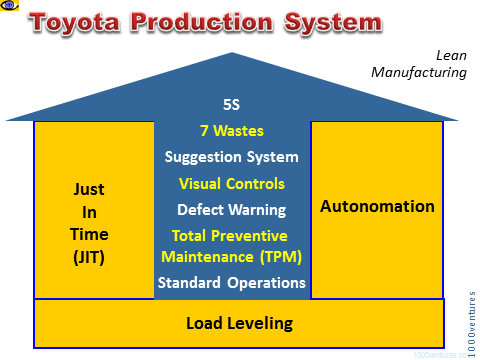| |
Toyota’s global
sustainable competitive advantage
is based on a corporate
philosophy, an integrated socio-technical management system and
practices
known as the Toyota Production
System (TPS). |
|
 |
| |
|
The Focus of TPS
Toyota Production System (TPS)
is
not just about “5Ss”
or “pull production” or “flow”” or "load leveling". |
|
|
| |
Specific Factors Underlying Toyota's Success
An effective and efficient human resources management system, the
cornerstone of which is a high level of employee loyalty and
commitment to quality
A state-of-the-art assembly system incorporating the latest robotic
technology
A well-coordinated network of world-class suppliers
A highly effective and efficient
just-in-time (JIT) inventory system |
|
Toyota Corporate Culture
5Ss
Continuous Improvement Mindset
Japanese Suggestion System |
|
|
|
|
Toyota
Suggestion System: Typical Annual Results
More than 700,000 improvement
suggestions
were submitted by Toyota's employees.
That is an average of over 10
improvement suggestions per employee per year.
Over 99% of suggestions were
implemented. |
|
|
|